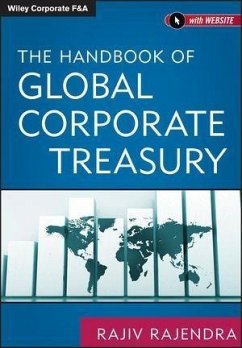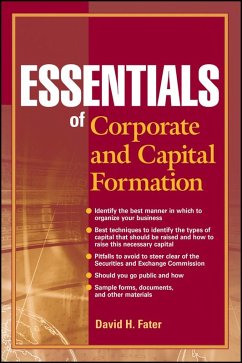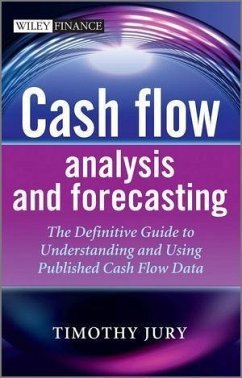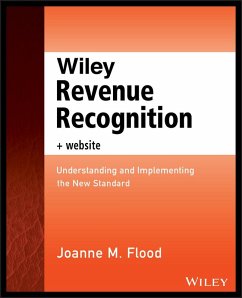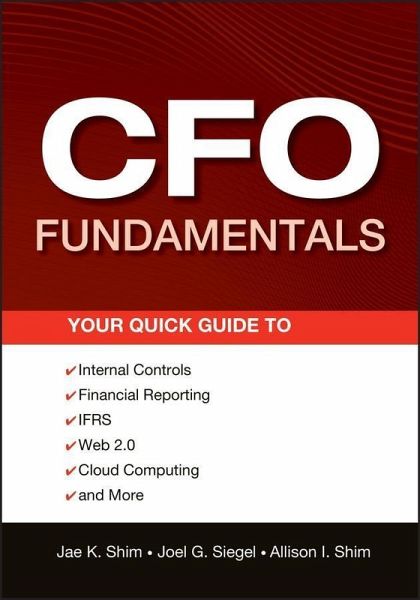
CFO Fundamentals (eBook, ePUB)
Your Quick Guide to Internal Controls, Financial Reporting, IFRS, Web 2.0, Cloud Computing, and More
Versandkostenfrei!
Sofort per Download lieferbar
45,99 €
inkl. MwSt.
Weitere Ausgaben:

PAYBACK Punkte
0 °P sammeln!
The thorough reference that goes wherever you go The Complete CFO Reference is the perfect up-to-date reference tool for today's busy CFO, controller, treasurer, and other finance professionals. Written in an easy format and packed with checklists, samples, and worked-out solutions for a wide variety of accounting and finance problems, readers can take this handy reference wherever they go-on a business trip, visiting a client, conducting a conference call, or attending a meeting. * Covers all major developments in finance and accounting every CFO needs to know about including IFRS, Web-based ...
The thorough reference that goes wherever you go The Complete CFO Reference is the perfect up-to-date reference tool for today's busy CFO, controller, treasurer, and other finance professionals. Written in an easy format and packed with checklists, samples, and worked-out solutions for a wide variety of accounting and finance problems, readers can take this handy reference wherever they go-on a business trip, visiting a client, conducting a conference call, or attending a meeting. * Covers all major developments in finance and accounting every CFO needs to know about including IFRS, Web-based planning, and ranging from financial reporting and internal control to financial decision making for shareholder value maximization * Includes tables, forms, checklists, questionnaires, practical tips, and sample reports * Incorporates Accounting Standards Codification (ASC) throughout the book, as well as coverage of International Financial Reporting Standards (IFRS) and its impact on financial reporting, XBRL reporting, risk management and disaster recovery, Web-based planning and budgeting, Web 2.0, cloud computing, and environmental costing Simplifying day-to-day work in dozens of critical areas, The Complete CFO Reference is the perfect up-to-date reference tool for today's busy chief financial officer (CFO), controller, treasurer, financial director, budgeting director, and other financial professionals in public practice and private industry.
Dieser Download kann aus rechtlichen Gründen nur mit Rechnungsadresse in A, B, BG, CY, CZ, D, DK, EW, E, FIN, F, GR, HR, H, IRL, I, LT, L, LR, M, NL, PL, P, R, S, SLO, SK ausgeliefert werden.





